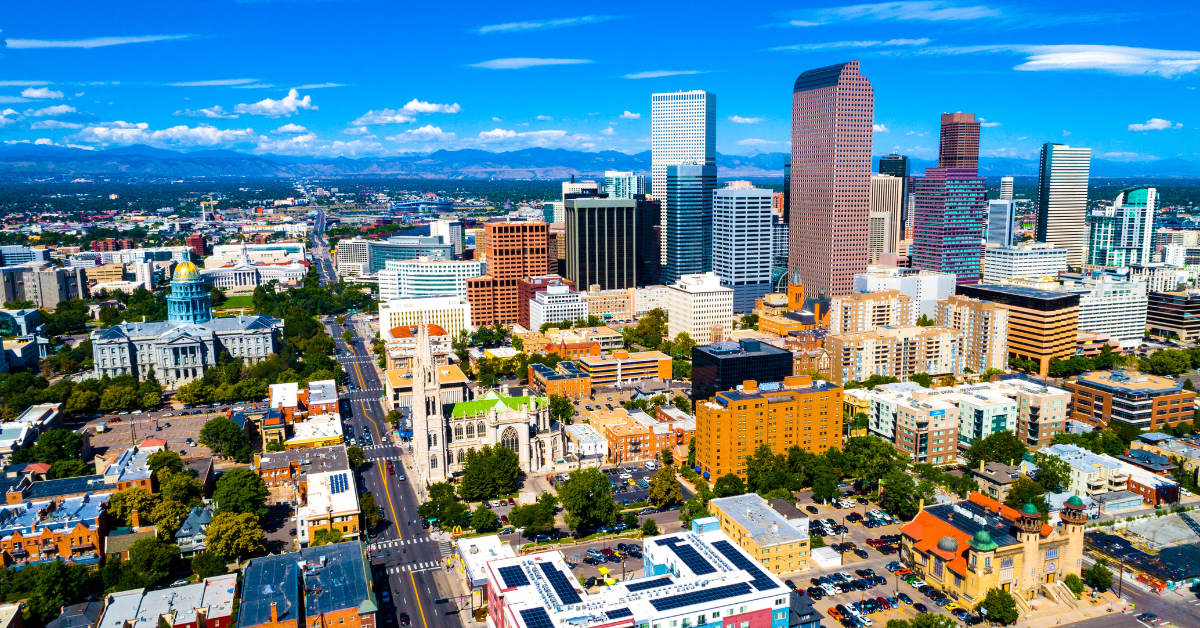Denver, the capital of Colorado, is a city that combines majestic nature and urban sophistication. Japanese people often see it as a place where one can live healthily while enjoying culture and outdoor activities. This article explores these impressions from multiple perspectives, helping foreigners better understand how Japanese people view Denver.
- The Image of Denver’s Nature Among Japanese People
- The Image of Denver’s Urban Culture Among Japanese People
- The Image of Denver’s Living Environment Among Japanese People
- The Image of Denver’s Business Opportunities Among Japanese People
- The Image of Denver’s Tourism Among Japanese People
- The Image of Denver’s Sports Scene Among Japanese People
- Conclusion
The Image of Denver’s Nature Among Japanese People
Denver, located right by the Rocky Mountains, is seen by Japanese people as a “city surrounded by nature.” Its four distinct seasons resonate with the Japanese cultural appreciation for seasonal changes. Many imagine hiking and camping in spring and summer, enjoying colorful foliage in autumn, and skiing or snowboarding in winter.
Because the air is crisp and clean, and the city enjoys many sunny days, Japanese people often view Denver as a “healthy place to live.” Its proximity to nature while still being an urban center creates an image of a city where one can live comfortably while staying close to the outdoors.
Features of Denver’s Nature as Seen by Japanese People
| Aspect | Japanese Impression |
|---|---|
| Mountain Scenery | Vast Rocky Mountain landscapes |
| Climate | Sunny skies, dry weather |
| Seasonal Appeal | Hiking in spring and summer, foliage in fall, skiing in winter |
| Health Image | Clear air and sunshine contribute to a refreshing lifestyle |
The Image of Denver’s Urban Culture Among Japanese People
Despite being a large city, Denver is perceived as a “calm and balanced metropolis.” Unlike New York or Los Angeles, it does not feel overwhelmingly hectic.
Japanese people particularly notice Denver’s craft beer culture, describing it as “a city where you can enjoy local flavors.” In addition, art museums, music festivals, and colorful murals give the impression of a city rich in art and music.
Features of Urban Culture
| Aspect | Japanese Impression |
|---|---|
| City Atmosphere | Urban yet calm environment |
| Food Culture | Recognized as a hub for craft beer |
| Arts | Public murals and museums reflect creative energy |
| Music | Frequent festivals and live events create a rich cultural scene |
The Image of Denver’s Living Environment Among Japanese People
Japanese people often see Denver as a “comfortable city to live in.” Its relatively stable safety and well-organized urban planning give a sense of reassurance.
The dry climate contrasts with Japan’s humidity, leading visitors to describe it as “refreshingly pleasant.” Infrastructure such as public transport and roads are sufficient for everyday life. Combined with strong education and healthcare systems, many Japanese people consider Denver “a good place to raise a family.”
Impressions of Daily Life
| Aspect | Japanese Impression |
|---|---|
| Safety | Seen as relatively stable and secure |
| Climate | Dry, comfortable climate offering a new experience |
| Infrastructure | Well-maintained roads and transit support daily living |
| Family Life | Strong education and healthcare make it family-friendly |
The Image of Denver’s Business Opportunities Among Japanese People
Denver has gained attention for its technology, renewable energy, and aerospace industries. Japanese business professionals see it as a “city of new opportunities.”
The city’s emphasis on environmental sustainability gives it the image of a “forward-looking city.” With its vibrant startup culture, Japanese professionals also consider it a place of “challenge and growth.”
Business Features
| Aspect | Japanese Impression |
|---|---|
| Key Sectors | Strong in technology and renewable energy |
| Career | Seen as a place for growth and new challenges |
| Work Style | Exposure to flexible, innovative ways of working |
| Future Outlook | Viewed as a city prioritizing sustainability |
The Image of Denver’s Tourism Among Japanese People
From a tourism perspective, Denver is seen as a city where one can enjoy both nature and urban attractions.
The Rocky Mountains and national parks are viewed as great places for outdoor adventure, while the city offers museums, zoos, and art-filled streets. Many Japanese travelers describe it as a “calm destination without overwhelming crowds,” suitable for families and independent travelers alike.
Tourism Features
| Aspect | Japanese Impression |
|---|---|
| Nature Tourism | Rocky Mountains and national parks for outdoor activities |
| City Tourism | Walking through art-filled and historic streets |
| Family Travel | Zoos and museums are family-friendly |
| Travel Style | Calm tourism experience, less crowded than other U.S. cities |
The Image of Denver’s Sports Scene Among Japanese People
Denver is strongly associated with sports in the eyes of Japanese people. The city is home to the Colorado Rockies (MLB), Denver Broncos (NFL), Denver Nuggets (NBA), and Colorado Avalanche (NHL).
For Japanese baseball fans, attending a game at Coors Field is considered a “must-do experience.” Beyond professional teams, Denver residents are active in running and cycling, reinforcing the image of a “healthy and active lifestyle.”
Sports Features
| Aspect | Japanese Impression |
|---|---|
| Pro Sports | City with all four major U.S. leagues represented |
| Baseball | Watching games at Coors Field is a highlight |
| Citizen Activities | Running and cycling are part of everyday life |
| City Atmosphere | Sports culture fosters a vibrant and energetic lifestyle |
Conclusion
For Japanese people, Denver represents a unique combination of majestic nature, rich urban culture, a secure and comfortable living environment, strong business opportunities, diverse tourism experiences, and a passionate sports scene.
Together, these impressions create an image of Denver as “a city that inspires both admiration and a sense of comfort.” For foreigners, understanding how Japanese people view Denver can be valuable when building personal or business relationships.






